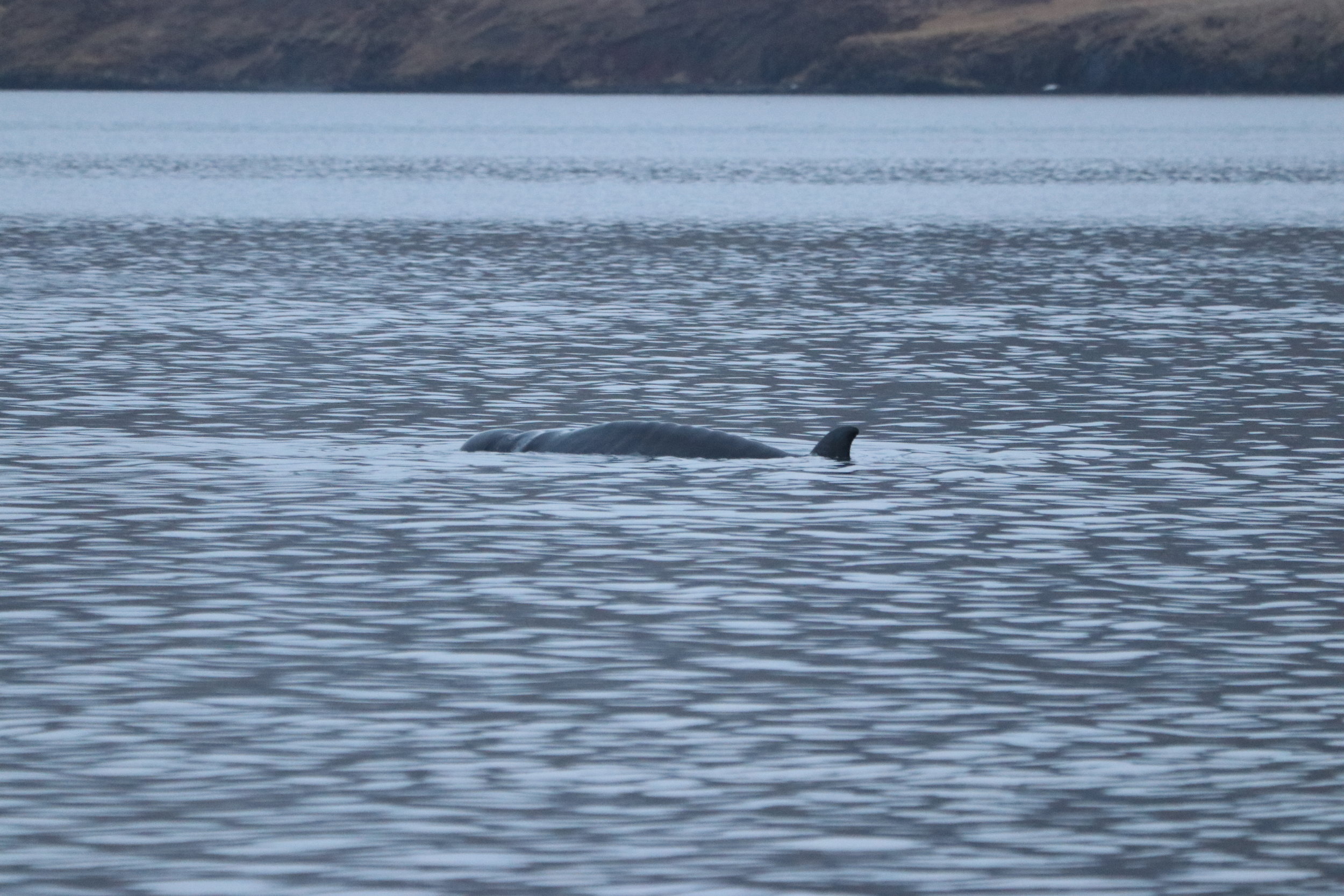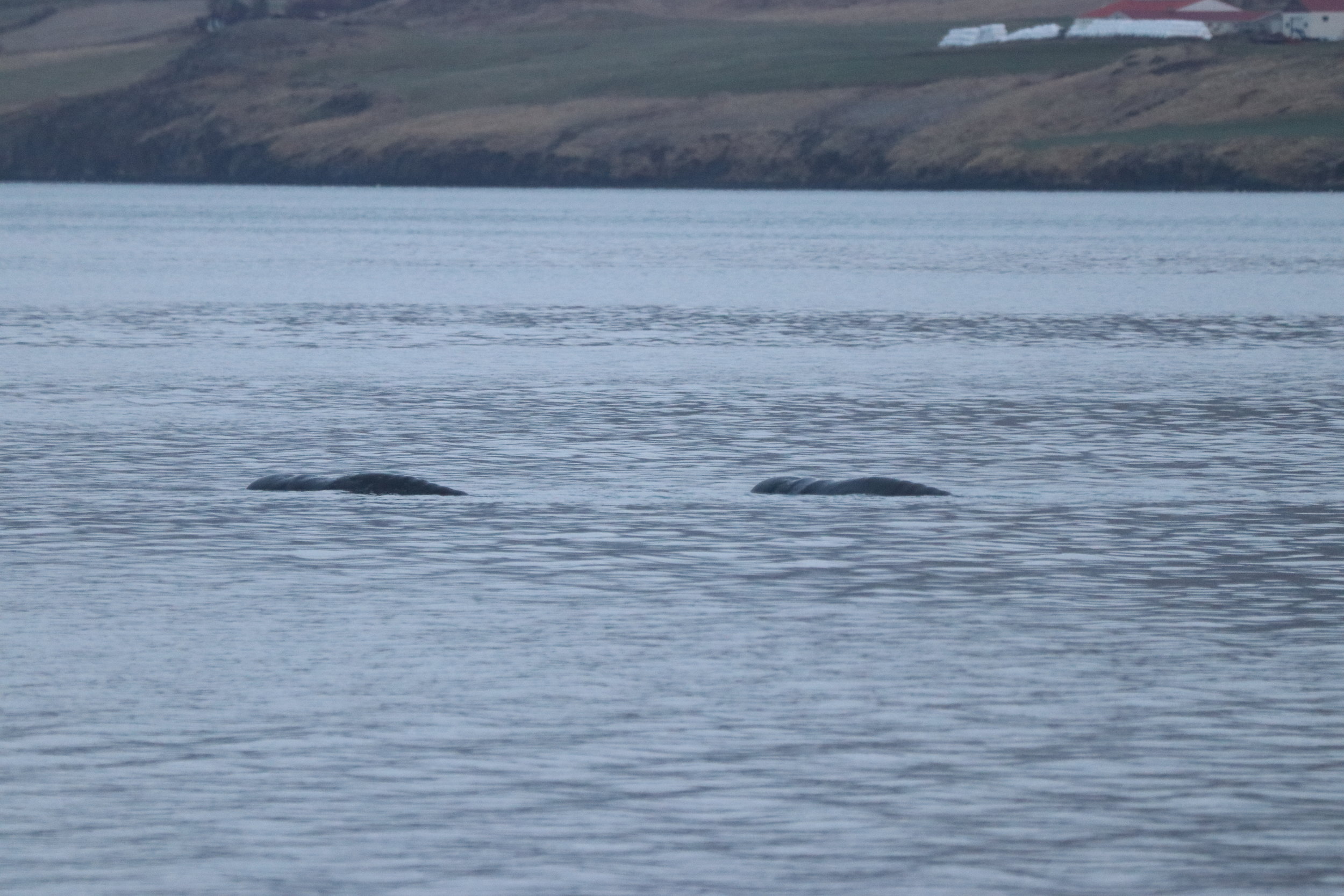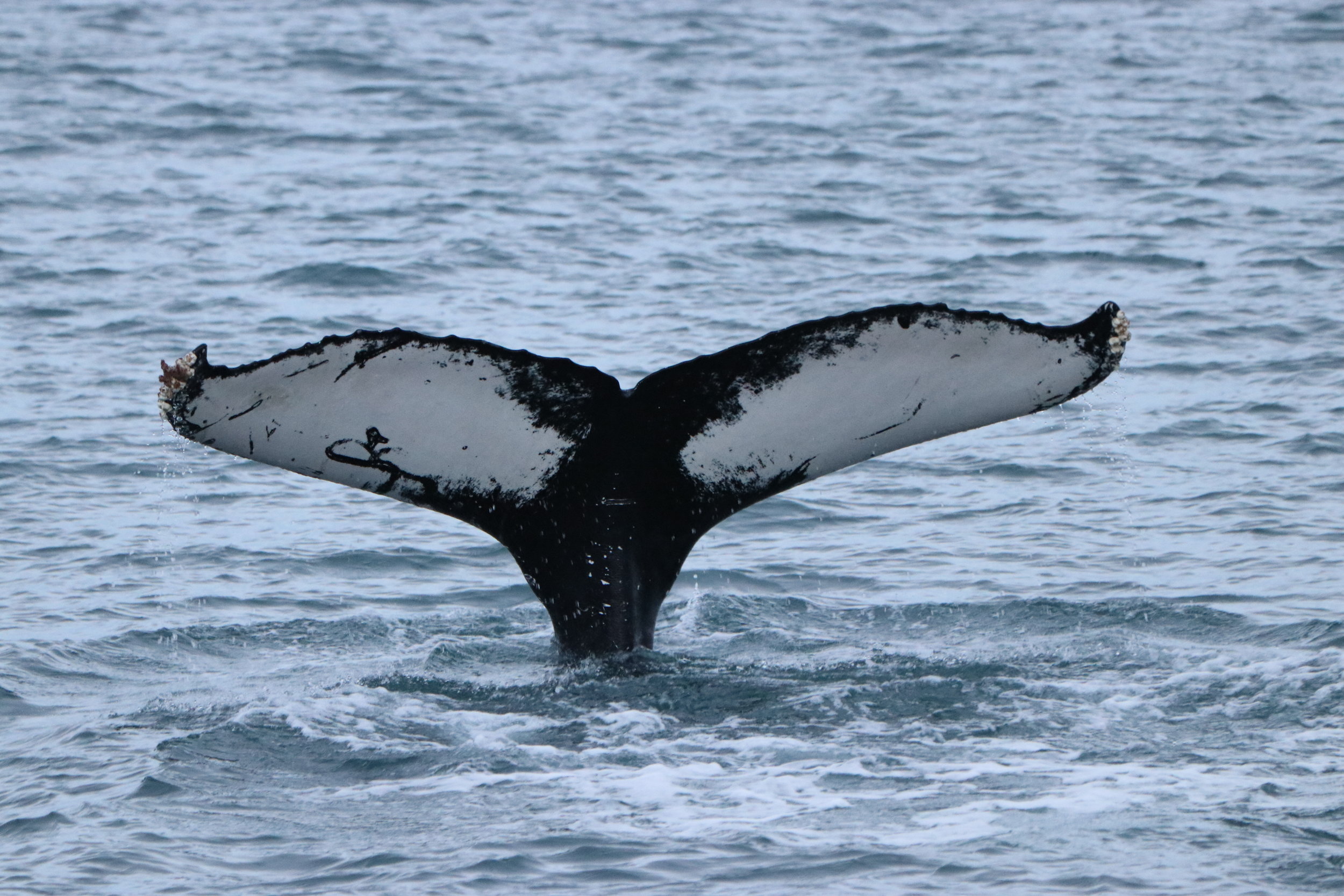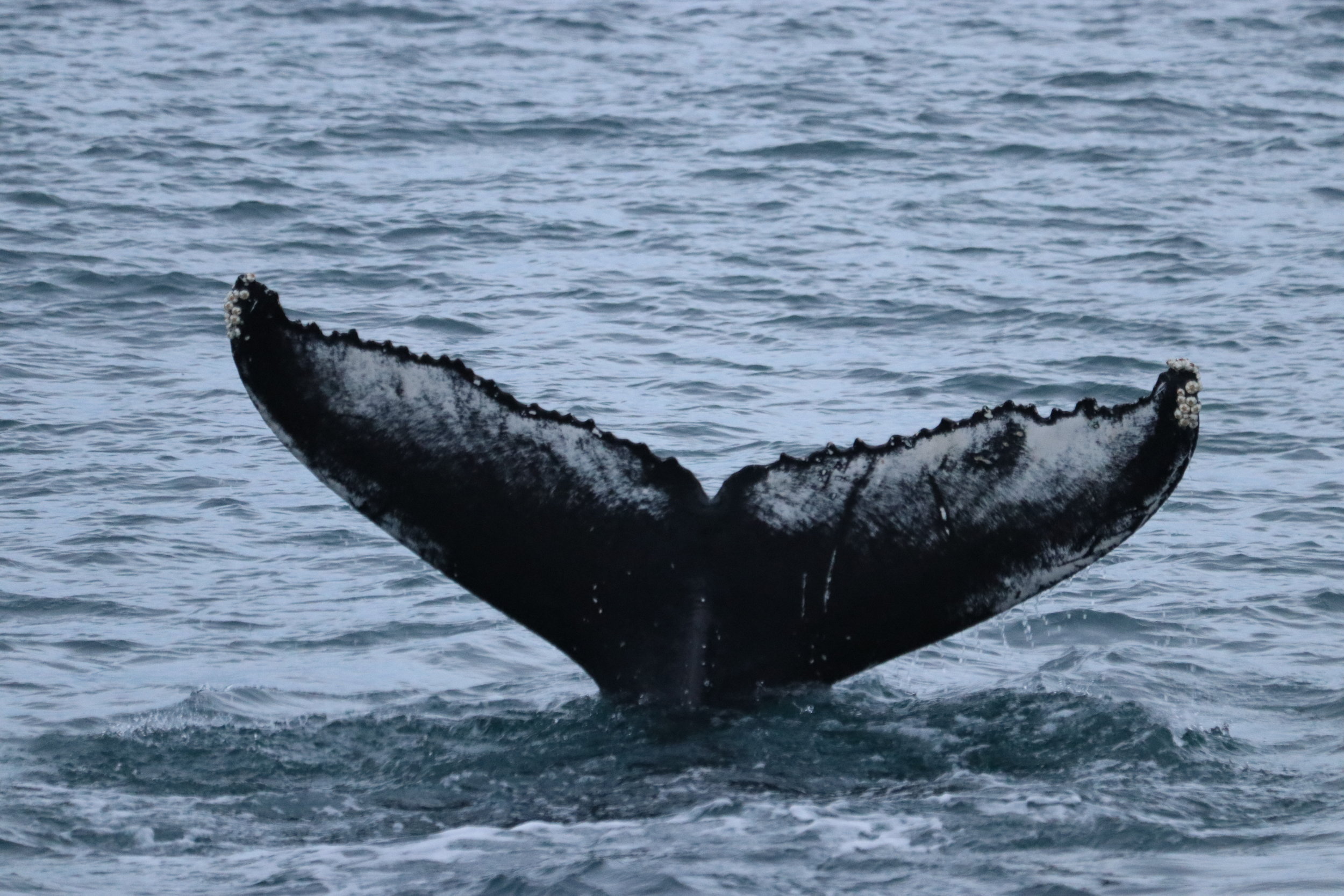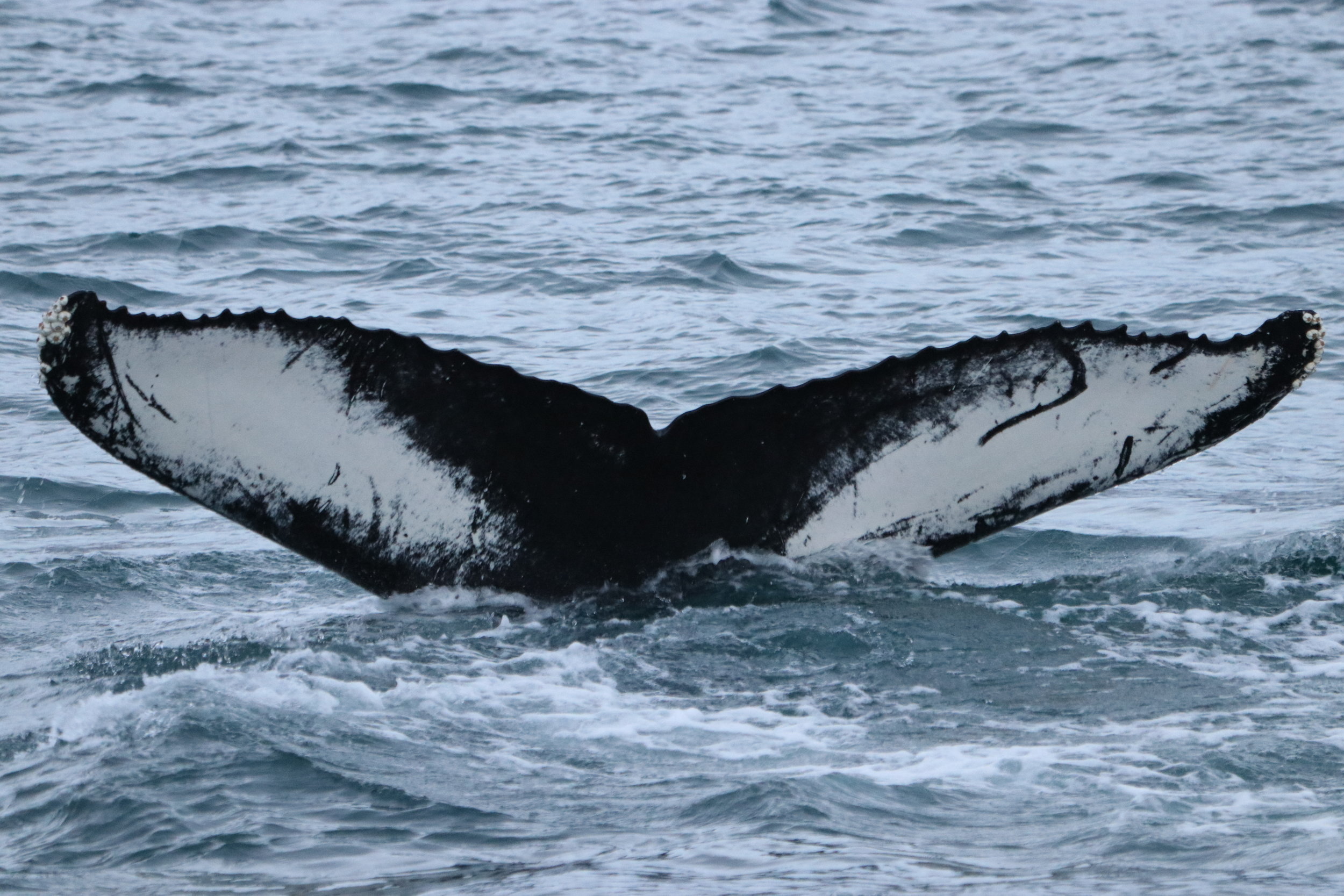Friday, 11 January 2019
We usually go out in the sea to experience the joy, the awe and the pure excitement of observing whales in their natural environment, in that world that is rightfully theirs, where we should act as respectful guests at best. So we did today, as usually, thanks to the presence of at least 6 Humpback whales feeding close to the Hjalteri area of the fiord. However, today was also a day of bittersweetness and sorrow for what we saw right at the beginning of the tour. For the last few months we have been enjoying the presence of a special guest species in the fiord, a deep diving cetacean species known as Northern Bottlenose Whale. The sight of these animals (up to 4 individuals in total, among which a calf was usually present) is always a remarkable experience, being such a criptic and unknown species for us marine biologists. However the encounters with these animals have been decreasing, the calf has not been seen in a long time, and when we spotted today just 2 of them… we understood their truly dreadful situation. The animals, as can be observed in the pictures, exhibit the so-called “peanut shape” in their heads, plus the spinal column and ribs bones are exageratedly visible through their skin. This proves an obvious malnutrition (or total lack of nutrition) that has most likely led to the death of the calf and the 4th individual, and will most likely lead to the death of these two whales in the upcoming days. Although it is always difficult to assess, this tragic event could be related to the recent numerous cases of strandings and deaths of this and similar cetacean species all across the Northeast Atlantic Ocean. A devastating trend that has been going on since the beginning of the last summer, 2018. The causes are always difficult to determine, but this and related deep-diving species of cetaceans rely almost entirely on their hearing systems to navigate, feed and communicate, and are always extremely sensitive to strong underwater noises such as those created by sonars. Something has (and is still) been going on, something that is obviously harming these animals and altering their behaviours, and that has undoubtably a human origin.
We have just one world. And despite the names we may give it, just one ocean. And it is time we realize it and act as if we cared.
Pictures and text by Alberto Alejandro

